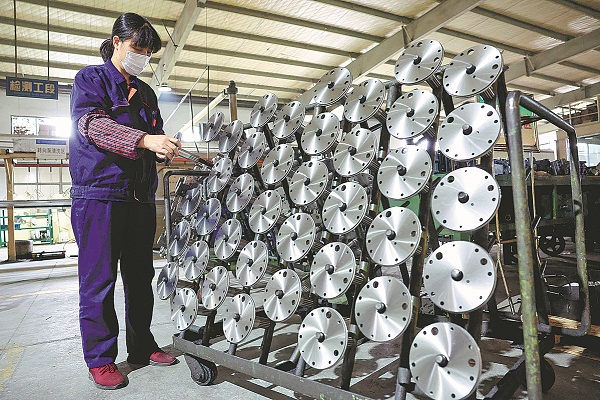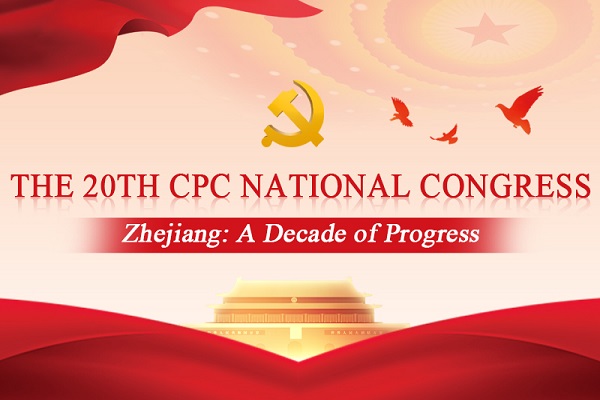More help on docket for pressured SMEs

An employee checks products at an automobile oil pump manufacturing firm in Hefei, Anhui province. ZHAO MING/FOR CHINA DAILY
Recent document details measures to prop up smaller firms amid challenges
Though recent outbreaks of COVID-19 have been pressuring small and medium-sized enterprises, China's economic fundamentals remain unchanged and more efforts will be made to bolster SMEs' ability to cope with short-term difficulties, an official said on Wednesday.
Xu Xiaolan, vice-minister of industry and information technology, said many SMEs have encountered operational difficulties amid the contagion, but China's economic fundamentals, including its strong resilience and long-term sustainability, remain unchanged.
Xu said the Ministry of Industry and Information Technology and relevant government bodies are working hard to help SMEs deal with challenges, such as helping them lower operating costs as well as easing their difficulties in securing financing and collecting payments.
Earlier this month, the State Council-the nation's Cabinet-released a document detailing a string of measures to prop up SMEs' capabilities to withstand short-term challenges. The document said that large State-owned commercial banks will work to increase loans to small and micro enterprises by 1.6 trillion yuan ($237.4 billion) this year.
Local governments should also arrange special bailout funds for small, medium-sized and micro enterprises, and provide subsidies for rent, loan interest and other aspects for those facing operational difficulties, the document added.
As SMEs are more vulnerable to fluctuations in supply and industry chains, the MIIT is also strengthening its push to include key SMEs on a "white list" to help them resume operations as soon as possible.
Li Xiaoqiang, deputy general manager of a raw materials company in Ruijin, Jiangxi province, said the local government has streamlined the process needed to resume work and helped the company transport raw materials.
According to the MIIT, average tariffs for SMEs' broadband and private internet lines will be reduced by another 10 percent this year, and the ministry is encouraging digital service providers to reduce the cost for SMEs to use cloud platforms so that the latter can better leverage digital technologies to boost efficiency.
More efforts will also be made to enhance the full integration of all spheres of small, medium-sized and large firms, including industry, supply and data chains, to promote symbiosis, according to a document jointly released by the MIIT and 10 other ministries on Monday.
The move is partly designed to leverage the capabilities of established companies to assist SMEs, and help stabilize industry and supply chains.
The document said a new ecology comprising enterprises of all sizes and featuring coordination, efficiency, integration and seamlessness will be formed to shore up industry and supply chains.
In this regard, it proposed guiding large enterprises to share their design and development strengths and allow smaller counterparts to access their equipment and laboratories.
It also called for further providing small businesses with free access to related project libraries and databases and matching their industry chains with corresponding large companies to push forward greater integration, the document said.
Yang Yuanqing, chairman and CEO of Lenovo Group, said established companies such as the IT giant should play a bigger role in driving the joint innovation and development of SMEs in both the upstream and downstream segments of industry and supply chains.
According to Lenovo, SMEs account for 44.5 percent of the company's industry chain, and it will offer help such as funds and marketing resources for them, especially those with core technologies.


 Red boat spirit inspires new developments
Red boat spirit inspires new developments Zhejiang: A Decade of Progress
Zhejiang: A Decade of Progress A look at Jiaxing's H1 economic data
A look at Jiaxing's H1 economic data